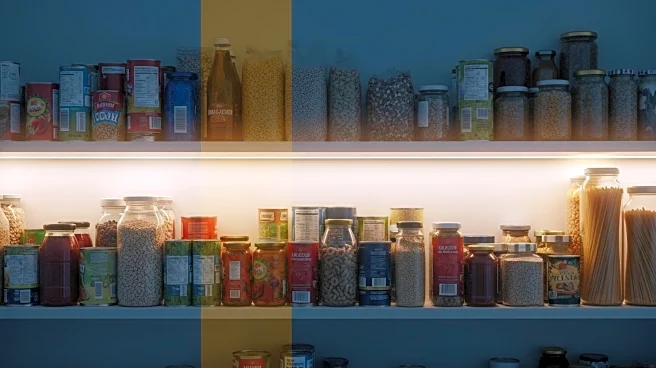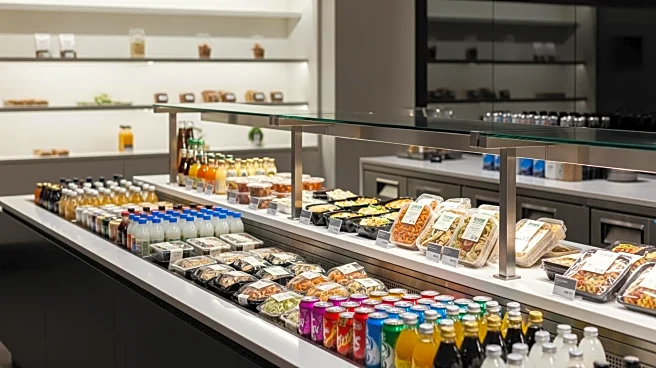What's Happening?
A recent survey conducted by Novus, commissioned by Lantmännen, reveals that 66% of Swedes are concerned about potential food shortages in the event of a crisis or war. This marks an increase from 59% last year. The survey highlights a growing dissatisfaction with Sweden's current level of food self-sufficiency, as only half of the food consumed in the country is produced domestically. Lantmännen, a major agricultural cooperative, emphasizes the need for Sweden to increase its domestic food production to enhance national security and resilience. The Swedish government has announced plans to build strategic reserves, a move supported by Lantmännen, which also calls for additional measures such as storing production inputs and boosting local food production.
Why It's Important?
The rising concern among Swedes about food security underscores the vulnerability of countries that rely heavily on food imports. This situation is particularly significant in the context of global supply chain disruptions and geopolitical tensions that can exacerbate food shortages. Increasing domestic food production could not only improve Sweden's self-sufficiency but also serve as a model for other nations facing similar challenges. The initiative to build strategic reserves and enhance local production could lead to greater economic stability and food security, benefiting both consumers and the agricultural sector. The emphasis on choosing Swedish and farmer-owned products also highlights the potential for consumer behavior to influence national food policies.
What's Next?
The Swedish government and agricultural stakeholders are likely to continue discussions on how to effectively implement strategies to increase food production and build strategic reserves. Lantmännen's call for more investments and political commitment suggests that further policy measures may be introduced to support these goals. The success of these initiatives will depend on collaboration between the government, industry, and consumers. As awareness of the importance of food security grows, there may be increased public support for policies that prioritize domestic agriculture and reduce reliance on imports.
Beyond the Headlines
The focus on food security in Sweden reflects broader global concerns about the sustainability and resilience of food systems. As climate change and geopolitical instability threaten traditional supply chains, countries may increasingly prioritize local production and strategic reserves. This shift could lead to significant changes in agricultural practices, trade policies, and consumer habits. The Swedish case also highlights the role of public perception and consumer choice in shaping national food strategies, suggesting that similar movements could emerge in other countries facing food security challenges.









